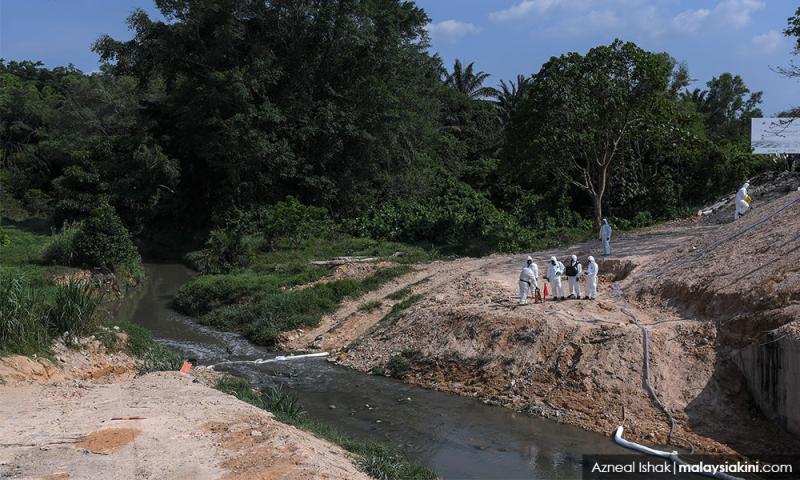Gov't must ensure effective enforcement to protect the environment
LETTER | The Malaysian Bar is deeply concerned about the frequency and severity of water pollution incidents – a form of environmental damage – in the country.
On 7 March 2019, news broke out about the industrial pollution in Sungai Kim Kim in Johor, which reportedly affected the health of almost 6,000 people.
A week later, the Selangor Water Management Authority reported that pollution believed to have been caused by chemical waste had been detected in the Klang River.
It is the Malaysian Bar’s view that contamination of water sources must be regarded as a threat to national security and well-being, and be dealt with as such, urgently and with the utmost seriousness.
The importance of protecting our water sources – including rivers, seas, lakes, groundwater, dams and reservoirs – was recognised by Parliament through the enactment of the Water Services Industry Act 2006, which gives the federal government the executive authority in respect of all matters relating to water supply systems and services.
The legislation provides for severe penalties for offences, signifying the gravity of the issue of water safety.
Article 5 of the Federal Constitution, which provides that “[n]o person shall be deprived of his life or personal liberty save in accordance with law”, has been interpreted by the Malaysian superior courts to include the right to live in a reasonably healthy and pollution-free environment (see Tan Tek Seng v Suruhanjaya Perkhidmatan Pendidikan & Another [1996] 1 MLJ 261).
The courts have also stated that the interpretation of Article 5 should be given a “prismatic” approach, ie provisions relating to fundamental rights must be generously interpreted to encompass the recognition of implied human rights (see Lee Kwan Woh v PP [2009] 5 MLJ 301 (Federal Court)).
Environmental rights – i.e., rights relating to environmental protection – should therefore be seen to encompass not only the right to a healthy environment but also human rights vulnerable to environmental harm, such as the right to life that is guaranteed in Article 5.
The Malaysian Bar is also concerned that water pollution reportedly may have contributed to the illness and death that have befallen the Bateq Orang Asli community in Kuala Koh.
The government must spare no effort in uncovering the cause of, and resolving the problem, as the welfare and even lives of these indigenous people are at stake.
The relevant authorities must also look into the needs of the Orang Asli – in the Batek and other communities – and take measures to increase Orang Asli empowerment and self-determination.
In doing so, the dignity of the Orang Asli must be fully respected, including their right to free, prior and informed consent as well as their right to prior and effective consultation at every stage of the process, in compliance with international best practices on indigenous and human rights.
It is disheartening to note that environmental pollution by industries continues to be prevalent, despite the existence of legislation to counter this menace.
The Malaysian Bar calls on the government to take immediate action to ensure the effective enforcement of environmental laws in order to curb activities that have adverse and irreversible effects on the environment as well as the health of present and future generations of all Malaysians.
The government is under a fiduciary duty to protect and preserve the environment, and to ensure that the full force of the law is brought to bear on all wrongdoers.
ABDUL FAREED ABDUL GAFOOR is the president of the Malaysian Bar.
The views expressed here are those of the author/contributor and do not necessarily represent the views of Malaysiakini.
RM12.50 / month
- Unlimited access to award-winning journalism
- Comment and share your opinions on all our articles
- Gift interesting stories to your friends
- Tax deductable
